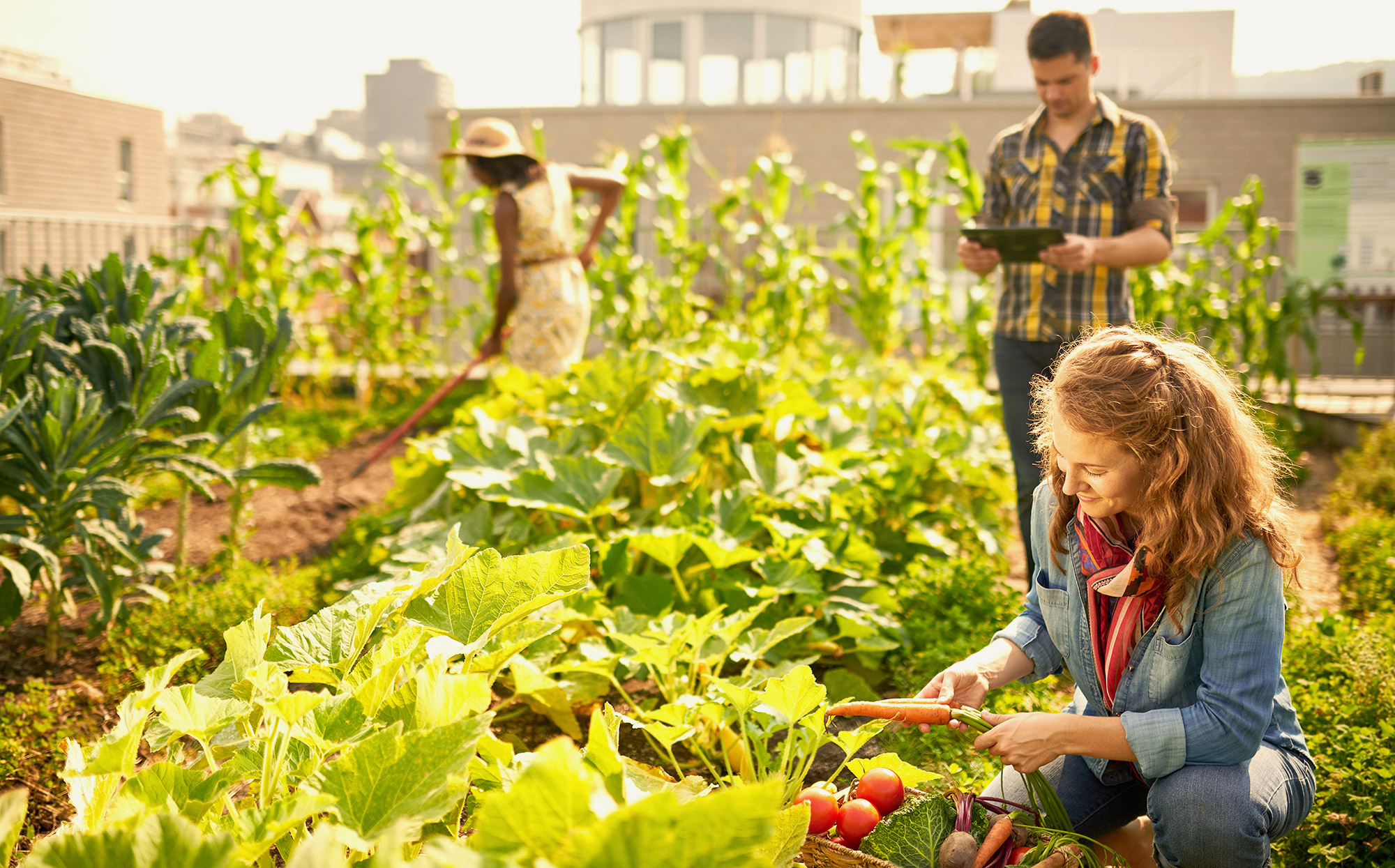What You'll Learn
- Develop approaches to modify current practices to conserve, protect, and enhance natural resources. Find new strategies to protect and improve rural livelihoods, equity, and social well-being.
- Learn methods to improve efficiency in the use of resources crucial to sustainable agriculture.
- Create robust business models throughout the food supply chain.
- Learn to leverage urban environments to produce and distribute locally sourced food.
- Evaluate governance mechanisms to responsibly and effectively transition to sustainable food production through private and public sector initiatives.
- Immerse yourself in curriculum aligned with the United Nations Sustainable Development Goals.
Our Community at a Glance
Surrounded by a diverse group of peers and faculty, you will discover issues of food sustainability through the lens of agroecology, biology, anthropology, environmental studies, economics, and nutrition.
-
35
Average Age
-
80%
Working Full Time
-
24%
Students Outside the U.S.
-
1.5 years
Average Time to Complete
Certificate Courses
The professional graduate certificate in sustainable food systems requires four courses, or 16 credits. You may choose from the following course groups, using the certificate course search.
- Certificate core courses (choose at least 2 courses; you may select up to 4 courses)
- Certificate electives (you may select up to 2 courses; however, elective courses are not required for this certificate)
Courses taken before the 2018-2019 academic year do not apply toward this certificate.
Earning Your Certificate
Most of our certificates can be completed online and no formal application process is required to pursue a certificate.
To meet the requirements for the certificate, you must:
- Complete the four certificate courses for graduate credit.
- Earn at least a B grade in each course.
- Complete the courses within three years.
Learn more about pursuing a certificate and the process of requesting your certificate.
Build a Stackable Credential Pathway
Stackable credential pathways allow you to earn multiple credentials by completing courses that meet overlapping requirements. In the short term, you can earn a micro or graduate certificate. Once completed, those courses may count toward a master’s degree.
You can:
- Stack the Sustainable Food Systems Graduate Certificate into either a master’s degree in sustainability or a master’s degree in global development practice.
Stackable pathways offer an efficient, cost-effective way to earn short-term credentials to help fill immediate skill gaps and acquire specialized knowledge while building a foundation for long-term success that showcases your expertise in the field.
Learn how to plan a stackable credential pathway.
Cost
Affordability is core to our mission. When compared to our continuing education peers, it’s a fraction of the cost.
| Our Tuition (2024–25 rate) | $3,340 per course |
|---|---|
| Average Tuition of Peer Institutions | $5,476 per course |
| Average Total Cost | $13,360 |
